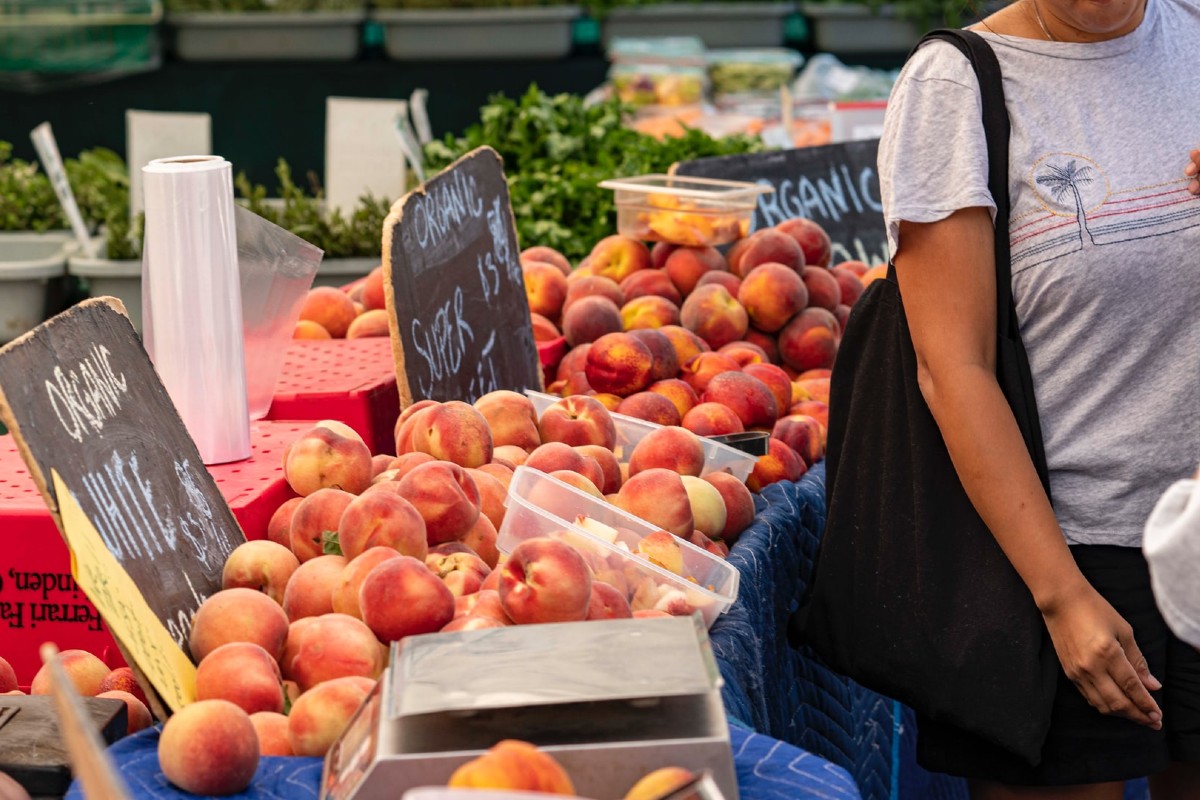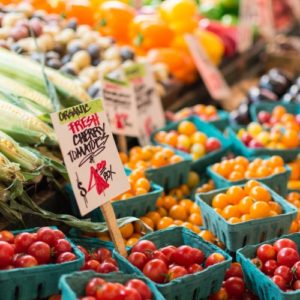
By Gregg Bragg, special to Statehouse Report | One of few bright spots in the pandemic age is the increase in the size and number of new farmers markets all over the state, according to the state Department of Agriculture.
“We’re seeing them everywhere — beside freeways, on off ramps, country roads and city streets,” said Eva Moore, the agency’s communications director. “Anywhere there’s room close to a farm. ”
She and coworkers are hearing that business is booming at local markets. Success is coming despite closures and limits on the restaurants that farmers usually rely heavily on to buy their products.
Many farmers markets once relied mostly on word-of-mouth advertising and street traffic, but have turned to social media to enhance sales, according to the Wadmalaw Island History And Happenings Facebook page. A farmers market on Wadmalaw Island, for example, is now distributing a list of 60 vendors over Facebook.
 Visiting these markets provides an almost carnival atmosphere. Because they are outside, customers can socially distance more easily while supporting their agribusiness and crafting neighbors.
Visiting these markets provides an almost carnival atmosphere. Because they are outside, customers can socially distance more easily while supporting their agribusiness and crafting neighbors.
Asked if resurgent demand from restaurants as they return to “normal” would derail the burgeoning farmers markets, Moore said she hoped that wasn’t the case and thinks the rise in farmers markets could be a windfall for S.C. growers she thinks will remain for the long term.
“Farmers want sales, not aid, right? We all hope that the [government’s] coronavirus aid payments will not be necessary in 2021,” she said. “We haven’t asked the feds to extend these programs, but as they see further need, they may make more funds available.”
Moore said the markets also are helping consumers become aware of what local growers can produce.
“I think that when people know more than ever that there are farmers in their community growing things they like, they’ll ask for it,” she said. “Chefs know that. They have relationships with farmers. I think it’s all going to be helpful economically.
“We know that our ‘Certified South Carolina Program’ has increased the percentage of local produce South Carolinians are buying, since it’s been around. All of those are going to work together to keep South Carolina farmers in business, and hopefully make 2021 a good year.
More is on minds of farmers, too
It isn’t just the pandemic weighing on farmers. Disastrous weather trends and a trade war with China started by Washington politicians isn’t helping.
“[The past five years have] been a tough time, but I think the [recent] phase one trade discussions with China have laid the groundwork for future recovery,” said Moore. Several programs have helped farmers, such as the ‘Farmers to Families Food Box’ program, are putting produce directly in the hands of people who need it nationwide. Food banks have also benefited from the excess produce with assistance and funding from the U.S. Department of Agriculture. Moore said South Carolina has made similar moves, and used donations to her agency to buy produce from farmers, which helps keep them afloat.
Stephanie Sox, communications director for the S.C. Farm Bureau, said Palmetto State farmers didn’t want government handouts.
But two relief packages intended to help SC farmers through the COVID-19 pandemic arrived just in time because of adverse conditions, such as a 2015 flood and the trade war, that have been worsening over the last five years.
Some 3,200 growers received $33.6 million in the first round of The Coronavirus Food Assistance Program, she said. Another $41.8 million is being distributed to more than 3,500 growers by mid-month, she added.
“While these programs have helped, they certainly have not made up for the reduction we have seen in farm income in the last five years,” Sox said. “Farm income has been reduced by half and they have not seen the same reduction in their input costs. So it’s costing as much or more to continue to operate.”
Impact of the trade deal on South Carolina farmers
Adam J. Kantrovich, a Clemson University Extension associate professor, told Statehouse Report that South Carolina should take news of China’s ability to meet the terms of the Trump Administration’s recent ‘trade deal’ with a grain of salt. Details of his assessment are available here: https://www.farmers.gov/cfap/data.
Kantrovich said China was supposed to purchase a combination of specific and miscellaneous farm products from American farmers totaling $37 billion in 2020. That number is to increase to $44 billion in 2021.
Although there is a caveat in the agreement that allows China to average the amounts they’re to spend over two years, he said neither seems likely to happen based on what he’s found so far.
“They have never purchased the amount that is stated in the agreement. Even if you were to add in Hong Kong and include all of the agricultural and timber products, ethanol, spirits, processed foods, et cetera,. they are still not even close,” he said.
- Gregg Bragg is a freelance reporter who lives on Johns Island.
- Have a comment? Send to: feedback@statehousereport.com
















 We Can Do Better, South Carolina!
We Can Do Better, South Carolina!